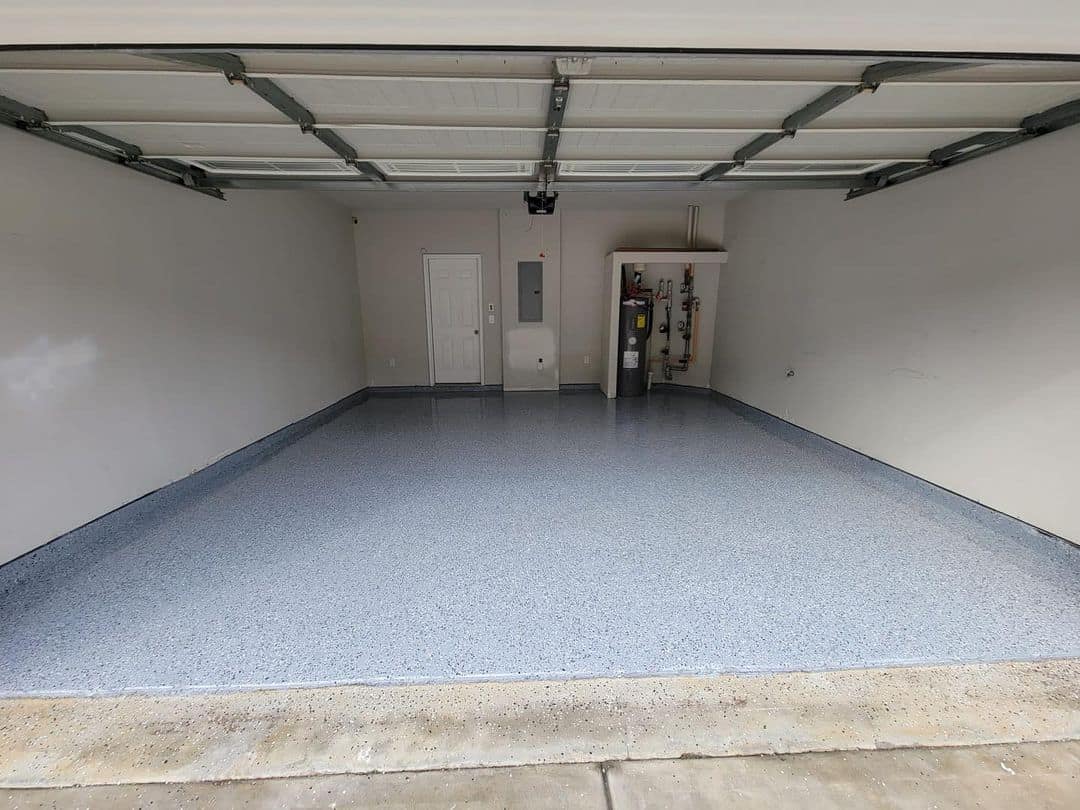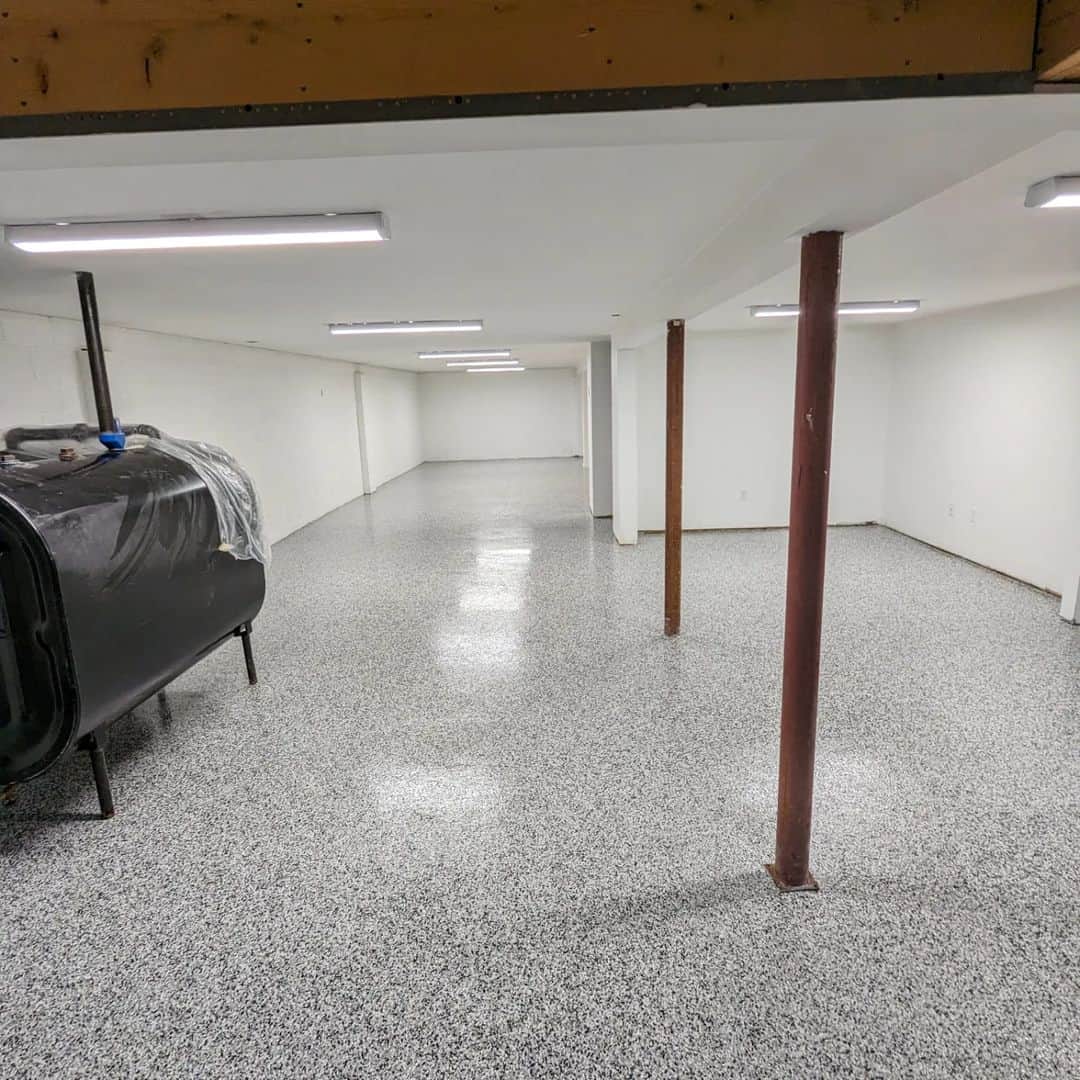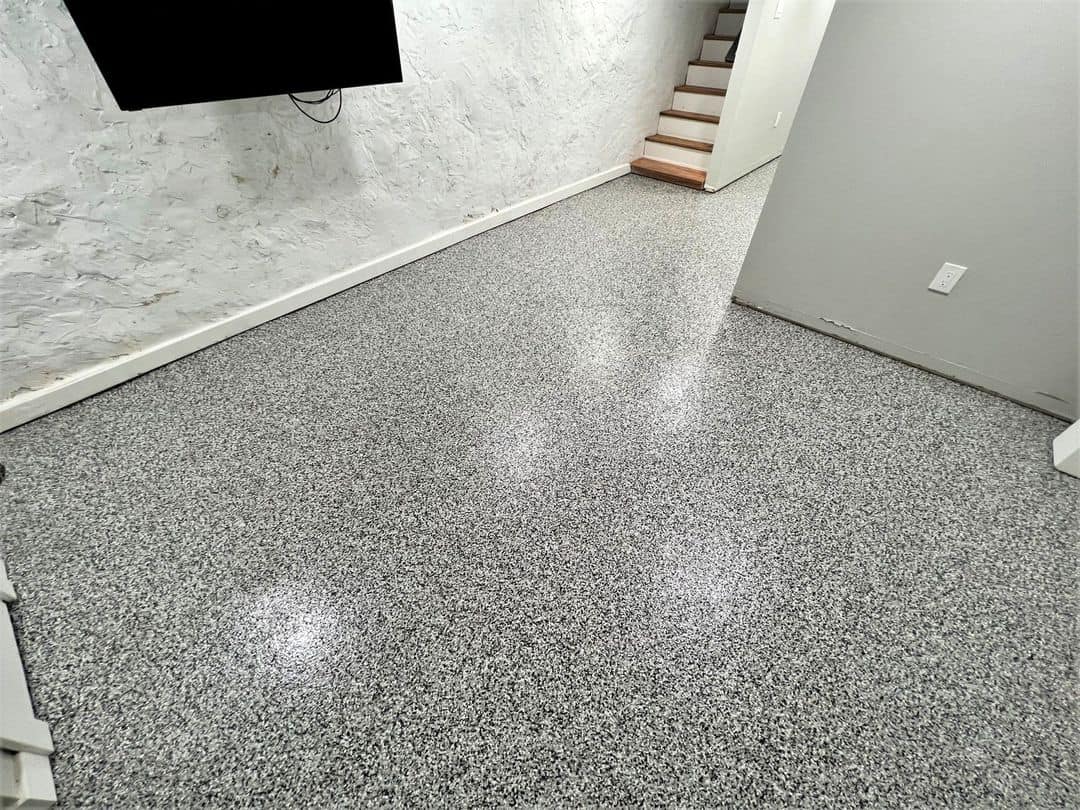Are you in the process of remodeling your basement and looking for the best flooring option? If so, you have come to the right place!
Although we all use the basement as storage, which is usually a dark pit filled with old furniture, clothes, toys, and equipment, it can be a spacious and decorated lounge or an additional room.
However, in order to transform it into a man’s cave or a game room, you need to choose and install the flooring. This, in turn, raises an important question: What flooring is the best for the basement?
You can choose from a number of different types of flooring; however, your decision should be based on the affordability, durability, and other features of the flooring rather than the aesthetics. Before we dive into the potential options, let’s check some common issues with basements.
Table of Contents
What Flooring is Best for Basements?
Common Issues With Basements
1. Moisture and Humidity
As you probably might know, the flooring in your basement is very different from the one in your living room. Why? Due to their ‘below-grade’ location, basements are prone to moisture accumulation, which can wreak havoc, especially if they have wood flooring.
Therefore, this is a significant factor when choosing the right flooring. If you are planning to install flooring, the area where you live also might affect your choice. For example, if you live in Florida, an area prone to high humidity – it is the most humid state in the U.S.
Therefore, you have fewer options regarding flooring. On the other hand, if you live in Arizona, you will not have the same problems with humidity as the homeowners in Florida. Interestingly, Arizona is one of the states with the lowest humidity level.
2. Test the Levels Of Humidity
Did you know that you can test the humidity levels in your basement? Yes! You can purchase or borrow someone’s hygrometer to determine the humidity levels.
Some signs indicate that you have moisture issues, such as excessive mildew, mold growing on interior surfaces, peeling and cracking paint, and sticking odors, among others.
How to Deal With Moisture in Your Basement?
Several methods or tools can help you lower the moisture levels in your basement.
1. Rock Salt and Charcoal
You would be surprised to know how effective an opened jar of granulated rock salts can be when it comes to moisture. Furthermore, rock salt is a type of desiccant or hygroscopic substance that has the ability to absorb moisture.
Similarly, charcoal can also absorb moisture and even remove nasty odors.
2. Dehumidifier
A dehumidifier is a device commonly used to deal with excess moisture in a room and can be an excellent choice for your basement.
3. Create an Air Flow or Install Ventilation
If you can, try to create airflow in the basement, and that will reduce the moisture and deal with its consequences. On the other hand, you can install proper ventilation or a fan depending on your budget.
Basement Flooring Options

1. Sheet Vinyl Flooring
As stated, basements are usually prone to moisture, which means that you need to install moisture-resistant flooring or flooring with waterproofing sealed. Vinyl flooring is one of the most affordable options, making it a good choice if you are on a short budget.
Advantages
Furthermore, sheet vinyl flooring generally offers excellent water resistance and is reasonably durable. It can be easily installed over concrete and is often used in basements that serve as a gym or playroom, meaning entertainment purposes.
The installation process is very simple, meaning that replacing sheet vinyl flooring is also an effortless task. The options for sheet vinyl flooring are limitless- you can choose whatever color or pattern you want.
Disadvantages
However, there are a few disadvantages to sheet vinyl flooring- it is very thing, meaning that it will overtake the features of the subfloor. For example, if the subfloor is made of concrete, the vinyl flooring will be cold and hard.
This explains why some people prefer to install foam between the subfloor and flooring.
2. Luxury Vinyl Plank (LVP)
Luxury vinyl plank is the right choice for you if you are looking for a hardwood floor. Compared to regular vinyl flooring, LVPs are much thicker and softer and have better sound-blocking features.
Suppose you want to install the luxury vinyl plank. In that case, we suggest you include foam underlayment or some other type of underlayment because it is an additional layer that offers excellent protection.
Advantages
It goes without saying that vinyl plank flooring is highly durable, making it an excellent choice for various purposes- you can install it in your basement if you want to transform it into a workshop or game room.
Furthermore, LVP is entirely made of PVC, wholly waterproof, and considered scratch-resistant flooring, making it ideal for homeowners with small kids and pets. Also, it is very resistant to moisture and will last a long time.
Another great advantage is the limitless pattern and color options; you can choose from various LVPs that resemble wood, tiles, or stone.
Disadvantages
Although LVPs have numerous advantages, they also come with cons that might prevent you from purchasing and installing this type of flooring.
One of the major issues is costly installation, which can range from $800 to $2,900, depending on the square footage of your basement. Furthermore, most PVC products, including luxury vinyl flooring, are not eco-friendly.
Also, be wary when choosing luxury vinyl because some brands with checkered histories are known for low-end products.
3. Concrete Flooring

The simple concrete flooring will work if you are under budget or plan to use your basement as a working space or storage. There are several concrete flooring, such as painted, stained, or textured concrete.
Advantages
One of the significant advantages of concrete flooring is its low cost because it usually considers sprucing up your subfloor rather than installing an additional layer or adding tiles. You can always choose painted or stained concrete if regular concrete seems boring.
Furthermore, stained concrete flooring offers additional features such as insulation or an extra moisture barrier.
Disadvantages
For some people, concrete flooring gives a cheap or industrial vibe, which is why many stay away from it. Also, if you choose concrete flooring, the purpose of the basement is limited because it does not provide comfort or warmth.
Some of these issues can be fixed by using certain paints or textures; however, it will never be as comfortable as using other types of flooring, such as carpet.
4. Laminate Flooring
Laminate flooring is a multi-layer synthetic flooring designed to mimic the appearance of wood or stone flooring. It is reasonably popular, durable, and resistant to scratches, and compared to hardwood flooring, it is more stable.
Advantages
Laminate flooring is an excellent option for basements because it is hardy, and if you have a good underlayment, it will not need much maintenance or upkeep.
In addition, laminate flooring is a good substitute if you want to mimic wooden flooring in your basement without paying the actual price of wooden flooring.
Disadvantages
Laminate is not an environmentally safe material and is not resistant to moisture or waterproof. Therefore, if your basement’s moisture levels are high, you will have to opt for a more robust type of laminate flooring.
Laminate flooring installation will most likely break the bank, which is one of the reasons homeowners choose not to purchase it. Ultimately, the most critical factor is moisture, which will cause it to pop up.
Luckily, laminate basement flooring such as Pergo Outlast is resistant to water.
5. Tile Flooring

As we all know, tiles are excellent for bathrooms or rooms with high humidity levels. Tile flooring offers stain resistance and is pretty durable and waterproof. You can choose from a number of different types of tiles, such as ceramic, porcelain, and natural stone.
The most crucial factor is the basement’s function if you are considering tile flooring because of its appearance.
Advantages
Similarly to vinyl flooring, tile flooring offers myriad options and styles, which gives you flexibility regarding the budget. It is waterproof and generally resistant to moisture. However, some types of tile flooring offer an edge over others.
For example, ceramic tiles are moisture-resistant but are highly porous. On the other hand, porcelain tiles are a type of ceramic tiles of better quality, meaning they are not as absorbent as ceramic and are more durable.
Talking of stone tiles, aesthetically, it is one of the best options, but it is on the higher end, so you need a hefty budget for tiles and the installation, which makes up 40% or 50% of the total cost. The installation is also very simple; tiles can be laid straight onto the concrete slab.
Disadvantages
The major drawback regarding tile flooring is the lack of comfort and warmth. Also, some people avoid installing tiles in their basement because it exudes a hospital or bathroom vibe. However, this can be fixed by choosing wood-look tiles.
Conclusion
There are several types of flooring that you can choose for your basement. The most important factors you need to consider are your budget, levels of humidity in your basement, and its purpose of it.
Besides these, other factors, such as the type of subflooring you have or whether you want to insulate the flooring, can influence your decision.
What type of flooring seems the best for you? Please share your experience with us! If you have any questions, do not hesitate to ask!